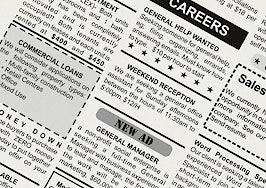- Buyer’s agents actually come in a couple of different flavors -- and types. They pretty much fall into one of two categories: hunters and helpers.
- The main reason behind this difference can be found in an individual’s core personality.
- Each type is better suited for specific environments, and agents can benefit from identifying their type.
Based on actual data from the field, our research shows that not all successful buyer’s agents share the same talents and abilities.
Buyer’s agents actually come in a couple of different flavors — and types. They pretty much fall into one of two categories: hunters and helpers.
Some are more ideally suited for the hunter and gatherer sales-based environment where they need to go find new customers and actively (maybe even aggressively) close them.
Others, however, are better suited for servicing leads hard-fought and closed by someone else (think inside sales associates).
The main reason behind this difference can be found in an individual’s core personality. Based on the way they think and make decisions and their natural behavioral style, all individuals have their own unique set of natural talents for a wide variety of things.
The key is that these traits aren’t something you learn; they are primarily natural, based on your genes and early childhood.
Both types can be equally as successful in their roles, but they must be in the proper environment. Let’s take a closer look at both.
The hunter
The personality profile of the hunter agent is:
- A high D/I in the DISC behavioral model.
- More aggressive and assertive.
- Prefers to lead people through the sales process.
- More outgoing and likely to take control of any situation (the sale).
- Has a much higher sense of urgency and is less accepting of indecision.
- Welcomes (actually loves) competition and going into “battle” to win.
- Hates (really detests) details and normally struggles to be even a little bit organized.
- Intolerant of slow-paced, “Can you show me a 23rd house now?” clients.
- Better suited for prospecting and not as great at working through all of the details to the finish/closing.
- More likely to make the move to a listing agent, team leader or independent broker.
The helper
The personality of the helper agent, on the other hand, is:
- Higher I/S in the DISC behavioral model.
- More cooperative than assertive.
- Still very outgoing, but collaborative rather than controlling.
- Prefers to partner with people through the sales process, rather than lead.
- Is open to a slower, more gradual pace with less intense sense of urgency.
- Not as comfortable prospecting or aggressively closing.
- Better able to handle the minutiae and lengthy detailed process of getting the buyer to the final close.
Your task is to make sure you have the right kind of buyer agent for the right kind of environment or culture.
If you have an inside sales agent (ISA) or someone who is converting suspects into qualified prospects and setting appointments, you might be better off with the helper agent style as they are much better suited to deal with all of the details and processes involved in getting all the way to the close.
If, however, you need your buyer agents to prospect and bring in the vast majority of their own new business, you might opt for the hunter style.
If you do, just be forewarned that they can be great at getting the business in the door, but like a sprinter, they will tire out in the lengthy, document-filled, detail-oriented paperwork hell of getting to the close. A good admin or transaction coordinator will be crucial to support a prolific business.
Jay Niblick is the co-founder and president of the real estate technology firm WizeHire.com.










